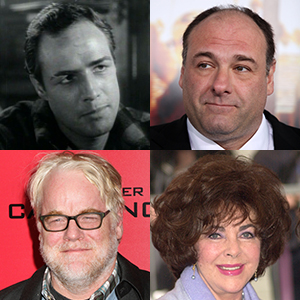 Celebrity deaths are a very public reminder that it’s important to have estate planning documents in place and to update them regularly. Here are some points to consider:
Celebrity deaths are a very public reminder that it’s important to have estate planning documents in place and to update them regularly. Here are some points to consider:
- Make Sure You Have a Will or a Revocable Trust
Many people make the common mistake of assuming their family members will honor their true wishes, as expressed verbally, even if there is no will or trust or if these documents have not been changed to include new wishes. Marlon Brando’s estate was involved in more than two dozen lawsuits over five years because employees and family members asserted that verbal promises had been made. - Consider Your Desire for Privacy
A will is a public document as it goes through probate, the first step in settling an estate after someone’s death. If you want your information kept private, consider a revocable living trust, instead. Very little is known about Elizabeth Taylor’s estate because she managed it through a trust. - Mention Everyone
Update wills and revocable trusts for big events like births. Philip Seymour Hoffman’s will mentioned his son, but not two daughters born later. If you are slow to update your will or trust, make sure it was well drafted. Most wills say “or other children I may have” to cover later births. - Take Into Account Your Marital Status
Mr. Hoffman gave his estate to his long-time partner but they weren’t married, and marriage saves taxes. Putting some assets into an irrevocable trust might have helped. Married couples can give an unlimited amount to a spouse tax-free during life or on death. - Ensure Your Legacy of Philanthropy Lives On
Johnny Carson designated part of his estate for charity. It doesn’t take an estate the size of Carson’s to make a difference. Estate gifts in any amount are an ideal means of providing for family and for continuing your support of causes, like City of Hope, that you championed during your lifetime. - Consider the Ages of Minors Carefully
Many with young children or grandchildren think they will be ready to receive and manage assets at age 21, 25 or 30. Often, we revise our expectations over time as our heirs mature (or don’t). James Gandolfini’s will called for his daughter to have full access to the assets he provided for her at age 21. That may or may not be the right age for your family members.

